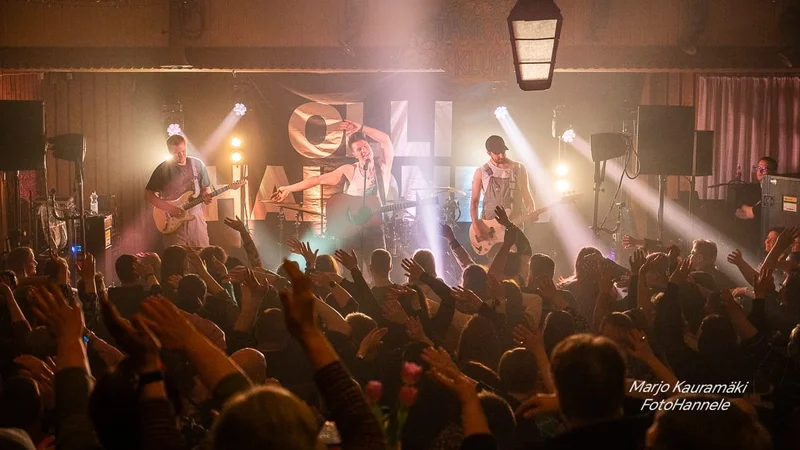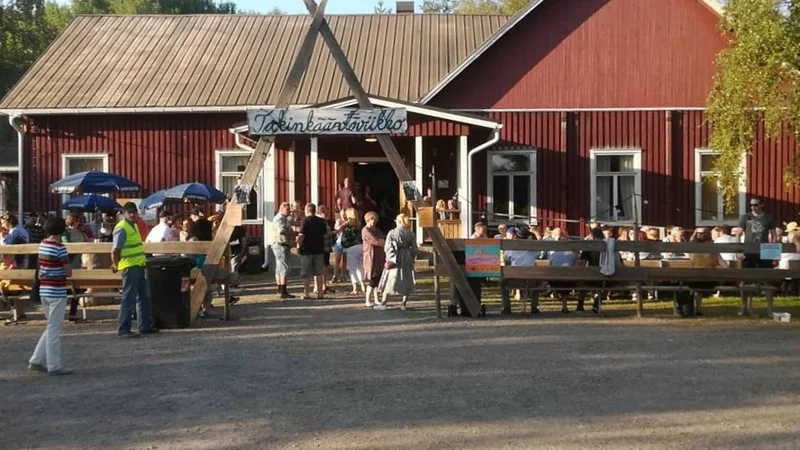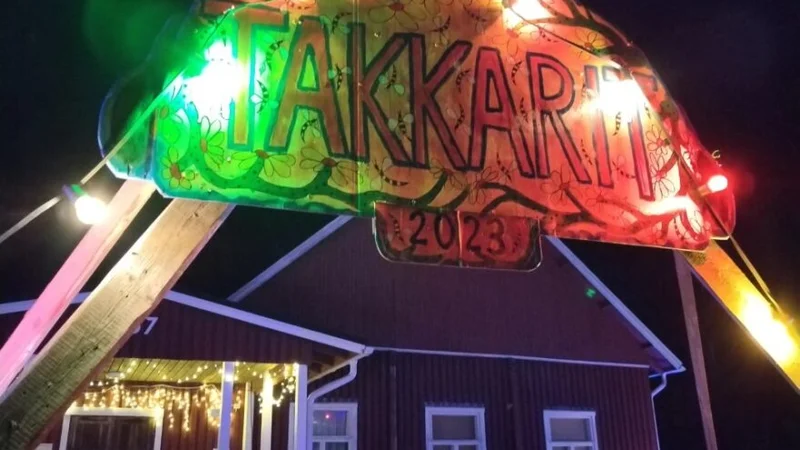The strategic goal of PoliRuralPlus is to strengthen the bidirectional flow of services, resources and opportunities between rural and urban communities.
What does this mean for the rural Mallusjoki and urban stakeholders, and for shared infrastructure and systems, as seen through the lens of the Mallusjoki region in Finland?
🔹 What It Means for Rural Mallusjoki
- Access to Urban Consumer Markets: Through its Rural Event Industry Ecosystem, Mallusjoki Youth Association hosts cultural events that attract urban visitors annually from Southern Finland. These events offer local producers access to larger urban markets.
- Professional Upskilling and Digital Tools: Rural residents gain new competencies (e.g. digital marketing, e-commerce, event management) through collaboration with urban educational institutions like Salpaus for vocational training, Helsinki University, Lahti-Lappeenranta University of Technologies and Lahti University of Applied Sciences.
- Remote Work & Telecommuting: Infrastructure investments are facilitating teleworking, allowing rural residents to access urban or global job markets while remaining in their community.
- Access to Urban Services: Healthcare (e.g., hospitals, specialized clinics), digital infrastructure and e-governance, markets and distribution networks for local agriculture and forestry products and other nature based services.
The access to urban services reduce rural isolation, increases quality of life, enhances employment and learning opportunities, and supports entrepreneurship (e.g., rural producers entering urban value chains).
🔹 What It Means for Urban Stakeholders
- Access to Rural Experiences and Services:
- Event tourism in the creative sector allows urban dwellers to engage in nature, culture, and wellness experiences in Mallusjoki (e.g. festivals, eco-accommodation). The video presents insights and feelings from one of the events - Takinkääntöviikko 2024.
- Urban artists and creatives are drawn to Mallusjoki to participate in and co-create cultural events, thus accessing rural inspiration, space, and collaboration opportunities.
- Food and Local Products: Local organic farming and food initiatives create shorter food supply chains, enabling urban consumers to buy fresh, sustainable produce directly from Mallusjoki.
- Rural Assets: Space for logistics, housing expansion, or sustainable commuting
🔹 What It Means for Collaborative Services
- Rural-Urban Ecosystem Creation: Mallusjoki’s “Rural Event Industry Ecosystem” is a platform uniting over 50 service providers from the village, nearby municipalities, and cities. It is orchestrated by the Mallusjoki Youth Association to foster cooperation and shared value creation.
- Smart Village Concept: Urban-rural digital integration is further promoted via Smart Village actions such as implementing smart energy, smart housing, and connectivity solutions that urban innovators help test or scale in the rural context.
- Policy Feedback Loop: The pilot also serves as a grassroots testing ground for policy. Feedback and insights are shared with territorial (NUTS2) and national (NUTS1) development bodies to co-design integrated services.
- Shared Infrastructure and Systems:
- Integrated private-public transport systems linking rural towns and cities
- Joint education service initiatives such as multi-modal and remote learning
- Joint education, healthcare, and social service initiatives such as digital doctor services
✅ Summary
The goal of the PoliRuralPlus project is to reduce the service divide between rural and urban areas. This represents a change in approach, moving away from separate, siloed planning towards a more integrated system in which rural and urban communities collaborate as part of a shared regional network.
The Mallusjoki pilot is a prime example of this. It demonstrates:
- a two-way exchange of people, skills and businesses between rural and urban areas
- collaborative platforms, such as cultural events and innovation hubs, that benefit both sides
- smart infrastructure and digital tools that provide rural residents with equal access to services such as education, healthcare and entrepreneurship.
These initiatives demonstrate how even a small rural village like Mallusjoki can flourish as an integral part of a wider regional network.
.
.



Existing Comments